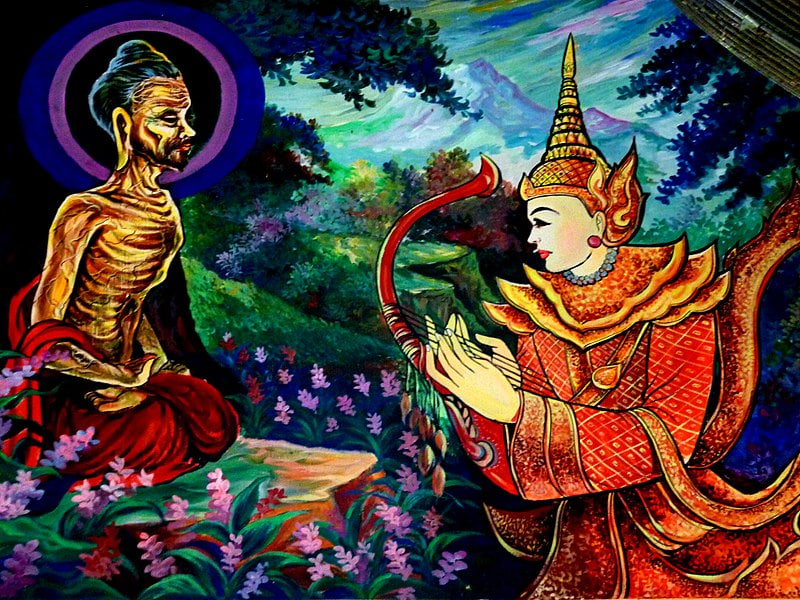The Middle Way

The Middle Way is also one of the main teachings of The Buddha. The Middle Way, a foundational precept of Buddhism, promotes a harmonious perspective on life and spiritual pursuit, steering clear of indulgence and extreme self-denial. This pivotal insight dawned upon Siddhartha Gautama (the Buddha) amid his pursuit of enlightenment. This call for moderation has permeated Buddhist philosophy across epochs and traditions, serving as a bedrock principle.
The concept of the middle path permeates numerous facets of Buddhist philosophy, including its more abstract notions. For instance, on one occasion, when queried about the existence of the self, the Buddha chose silence as his response. He later conveyed to a disciple that an affirmative response would have inclined towards eternalism, while a negative answer could have leaned into annihilationism or nihilism. His silence, situated betwixt the two extremes, embodied the essence of the Middle Way.
During the inaugural discourse, the Buddha elucidated the middle way alongside the eightfold path, outlining its guidelines for virtuous conduct. This principle underscores the significance of steering clear of the unrestrained chase of sensory gratification and the rigid self-mortification of asceticism. Instead, the Middle Way advocates for discovering a balanced route that recognizes and surpasses the yearnings and aversions of the mind.
The Middle Way accentuates that true wisdom and liberation arise through comprehending and surpassing the dichotomies and attachments that give rise to suffering. It encapsulates a comprehensive outlook on life, advocating a harmonious and attentive approach to living, contemplating, and pursuing the ultimate truth.










